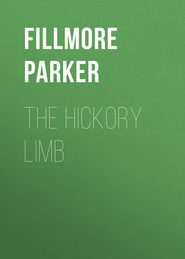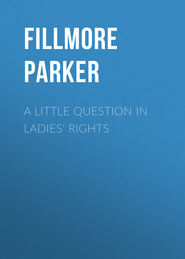По всем вопросам обращайтесь на: info@litportal.ru
(©) 2003-2024.
✖
Czechoslovak Fairy Tales
Настройки чтения
Размер шрифта
Высота строк
Поля
PRINCE BAYAYA
THE STORY OF A MAGIC HORSE
PRINCE BAYAYA
WHILE the king of a distant country was off at the wars, his wife, the queen, gave birth to twin sons. There was great rejoicing throughout the court and immediately messengers were despatched to the king to carry him news of the happy event.
Both boys were well and vigorous and shot up like little trees. The one who was about a moment the older was the hardier of the two. Even as a toddling child he was forever playing in the courtyard and struggling to climb on the back of a horse that had been given him because it was just his own age.
His brother, on the other hand, liked better to play indoors on the soft carpets. He was always tagging after his mother and never went outdoors except when he followed the queen into the garden. For this reason the younger prince became the mother’s favorite.
The boys were seven years old before the king returned from the wars. He looked at his sons with pride and joy and he said to the queen:
“But which is the older and which is the younger?”
The queen, thinking that the king was asking in order to know which was the heir to the throne, slipped in her favorite as the older. The king, of course, did not question his wife’s word and so, thereafter, he always spoke of the younger one as his heir.
When the boys had grown into handsome youths, the older one wearied of life at home and of hearing his brother always spoken of as the future king. He longed to go out into the world and seek adventures of his own. One day as he was pouring out his heart to the little horse that had been his companion from infancy, much to his amazement the horse spoke to him with a human voice and said:
“Since you are not happy at home, go out into the world. But do not go without your father’s permission. I advise you to take no one with you and to mount no horse but me. This will bring you good luck.”
The prince asked the horse how it happened that he could talk like a human being.
“Don’t ask me about that,” the horse said, “for I can’t tell you. But I wish to be your friend and counselor and I will be as long as you obey me.”
The prince promised to do as the horse advised. He went at once to his father to beg his leave to ride out into the world. At first his father was unwilling to let him go but his mother gave her permission at once. By dint of coaxing he finally won his father’s consent. Of course the king wanted the prince to set forth in a manner befitting his rank with a great company of men and horses. But the prince insisted that he wished to go unattended.
The prince promised to do as the horse advised. He went at once to his father to beg his leave to ride out into the world. At first his father was unwilling to let him go but his mother gave her permission at once. By dint of coaxing he finally won his father’s consent. Of course the king wanted the prince to set forth in a manner befitting his rank with a great company of men and horses. But the prince insisted that he wished to go unattended.
“Why, my dear father, do I need any such retinue as you suggest? Let me have some money for the journey and let me ride off alone on my own little horse. This will give me more freedom and less trouble.”
Again he had to argue with his father for some time, but at last he succeeded in arranging everything to his liking.
The day of parting came. The little horse stood saddled at the castle gate. The prince bade farewell to his parents and his brother. They all wept on his neck and at the last moment the queen’s heart misgave her for the deceit she had practised and she made the prince solemnly promise that he would return home within a year or at least send them word of his whereabouts.
So the prince mounted his little horse and off they trotted. The horse went at a surprising pace for an animal that was seventeen years old, but of course you have guessed before this that he was no ordinary horse. The years had not touched him at all. His coat was as smooth as satin and his legs were straight and sound. No matter how far he traveled he was always as fresh as a fawn.
He carried the prince a great distance until they came in sight of the towers of a beautiful city. Then the horse left the beaten track and crossed a field to a big rock.
When they reached the rock, the horse kicked it with his hoof three times and the rock opened. They rode inside and the prince found himself in a comfortable stable.
“Now you will leave me here,” the horse said, “and go on alone to the nearby town. You must pretend you are dumb and be careful never to betray yourself. Present yourself at court and have the king take you into his service. When you need anything, no matter what it is, come to the rock, knock three times, and the rock will open to you.”
The prince thought to himself: “My horse certainly knows what he’s about, so of course I’ll do exactly as he says.”
He disguised himself by bandaging one eye and making his face look pale and sallow. Then he presented himself at court and the king, pitying his youth and his affliction of dumbness, took him into his service.
The prince was capable and quick at affairs and it wasn’t long before the king gave over to him the management of the household. His advice was asked in matters of importance and all day long he hurried about the castle going from one thing to another. If the king needed a scribe, there wasn’t a cleverer one anywhere than the prince. Everybody liked him and everybody was soon calling him Bayaya, because those were the only sounds he made.
The king had three daughters, each more beautiful than the other. The oldest was called Zdobena, the second Budinka, and the youngest Slavena.
The prince loved to be with the three girls and as he was supposed to be dumb and in his disguise was very ugly, the king made no objection to his spending his days with them. How could the king possibly think that there was any danger of Bayaya’s stealing the heart of one of the princesses? They liked him, all three of them, and were always taking him with them wherever they went. He wove garlands for them, spun golden thread, picked them flowers, and drew them designs of birds and flowers for their embroidery. He liked them all, but he liked the youngest one best. Everything he did for her was done a little better than for the others. The garlands he wove her were richer, the designs he drew for her were more beautiful. The two older sisters noticed this and laughed, and when they were alone they teased Slavena. Slavena, who had a sweet and amiable disposition, accepted their joking without retort.
Bayaya had been at the court some time when one morning he found the king sitting sad and gloomy over his breakfast. So by signs he asked him what was the matter.
The king looked at him and sighed. “Is it possible, my dear boy,” he said, “that you don’t know what’s the matter? Don’t you know the calamity that threatens us? Don’t you know the bitter three days that are at hand for me?”
Bayaya, alarmed by the seriousness of the king’s manner, shook his head.
“Then I’ll tell you,” said the king, “although you can be of no help. Years ago three dragons came flying through the air and alighted on a great rock near here. The first was nine-headed, the second eighteen-headed, and the third twenty-seven-headed. At once they laid waste the country, devouring the cattle and killing the people. Soon the city was in a state of siege. To keep them away we placed all the food we had outside the gates and in a short time we ourselves were starving. In desperation I had an old wise woman called to court and asked her was there any way to drive these monsters from the land. Alas for me, there was a way and that way was to promise the awful creatures my three beautiful daughters when they reached womanhood. At that time my daughters were only small children and I thought to myself many things might happen in the years before they grew up. So, to relieve my stricken land, I promised the dragons my daughters. The poor queen died at once of grief, but my daughters grew up knowing nothing of their fate. As soon as I made the monstrous bargain, the dragons flew away and until yesterday were never again heard of. Last night, a shepherd, beside himself with terror, brought me the news that the dragons are again settled in their old rock and are sending out fearful roars. Tomorrow I must sacrifice to them my oldest child, the day after tomorrow my second child, and the day after that my youngest. Then I shall be left a poor lonely old man with nothing.”
The king strode up and down and tore his hair in grief.
In great distress Bayaya went to the princesses. He found them dressed in black and looking ghastly pale. They were sitting in a row and bewailing their fate most piteously. Bayaya tried to comfort them, telling them by signs that surely some one would appear to rescue them. But they paid no heed to him and kept on moaning and weeping.
Grief and confusion spread throughout the city, for every one loved the royal family. Every house as well as the palace was soon draped in black and the sound of mourning was heard on every side.
Bayaya hurried secretly out of the city and across the field to the rock where his magic horse was stabled. He knocked three times, the rock opened, and he entered.
He stroked the horse’s shining mane and kissed his muzzle in greeting.
“My dear horse,” he said, “I have come to you for advice. Help me and I shall be happy forever.”
So he told the horse the story of the dragons.
“Oh, I know all about those dragons,” the horse answered. “In fact, it was that you might rescue the princesses that I brought you here in the first place. Early tomorrow morning come back and I will tell you what to do.”
Bayaya returned to the castle with such joy shining in his face that if any one had noticed him he would have been severely rebuked. He spent the day with the princesses trying to comfort and console them, but in spite of all he could do they felt only more terrified as the hours went by.
The next day at the first streak of dawn he was at the rock.
The horse greeted him and said: “Lift up the stone under my trough and take out what you find there.”
Bayaya obeyed. He lifted the stone and under the stone he found a large chest. Inside the chest he found three beautiful suits of clothing, with caps and plumes to match, a sword, and a horse’s bridle. The first suit was red embroidered in silver and studded with diamonds, the second was pure white embroidered in gold, and the third was light blue richly embroidered with silver and studded with diamonds and pearls.
For all three suits there was but one mighty sword. Its blade was beautifully inlaid and its scabbard shone with precious stones. The horse’s bridle was also richly jeweled.
“All three suits are for you,” the horse said. “For the first day, put on the red one.”
So Bayaya dressed himself in the red suit, buckled on his sword, and threw the bridle over the horse’s head.
“Have no fear,” the horse said as they left the rock. “Cut bravely into the monster, trusting to your sword. And remember, do not dismount.”
At the castle heartbroken farewells were being taken. Zdobena parted from her father and her sisters, stepped into a carriage, and accompanied by a great multitude of her weeping subjects was slowly driven out of town to the Dragon Rock. As they neared the fatal spot the princess alighted. She took a few steps forward, then sank to the earth in a faint.
At that moment the people saw galloping toward them a knight with a red and white plume. In a voice of authority he ordered them to stand back and leave him to deal alone with the dragon. They were glad enough to lead the princess away and they all went to a hill near by from which they could watch the combat at a safe distance.
Now there was a deep rumbling noise, the earth shook, and the Dragon Rock opened. A nine-headed monster crawled out. He spat fire and poison from all his nine mouths and cast about his nine heads, this way and that, looking for his promised prey. When he saw the knight he let out a horrible roar.










